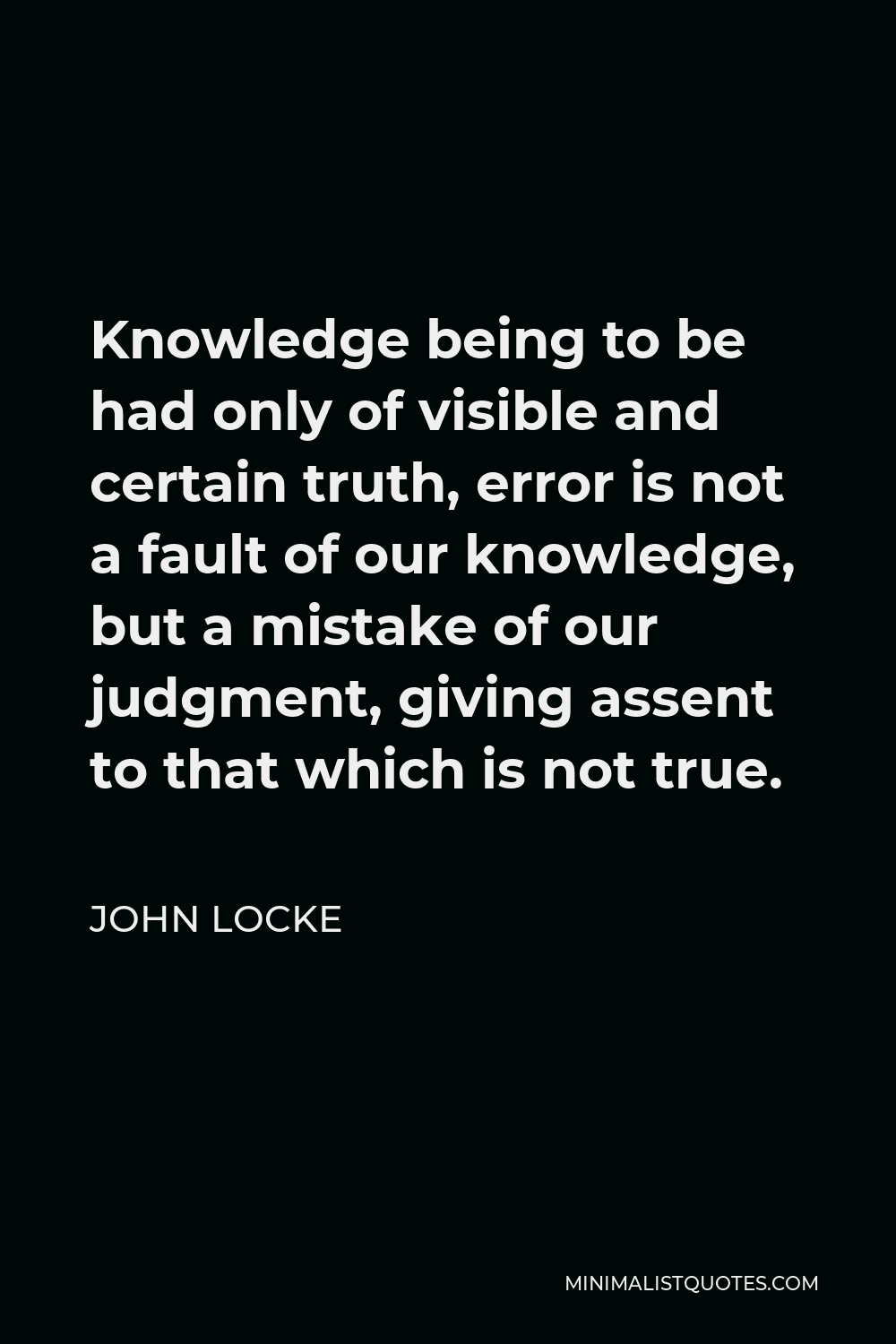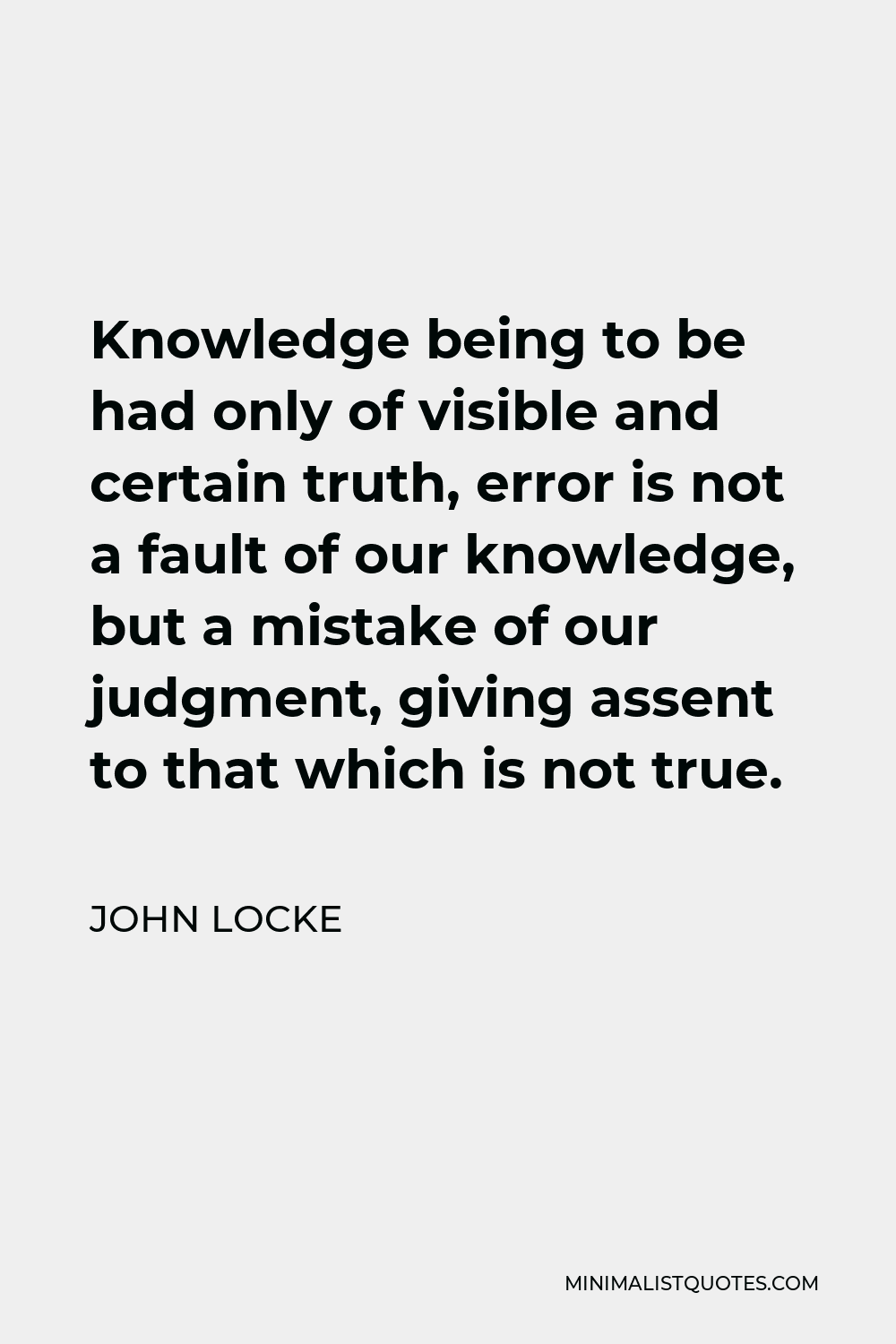If you punish him for what he sees you practise yourself, he… will be apt to interpret it the peevishness and arbitrary imperiousness of a father, who, without any ground for it, would deny his son the liberty and pleasure he takes himself.
JOHN LOCKEKnowledge being to be had only of visible and certain truth, error is not a fault of our knowledge, but a mistake of our judgment, giving assent to that which is not true.
More John Locke Quotes
-





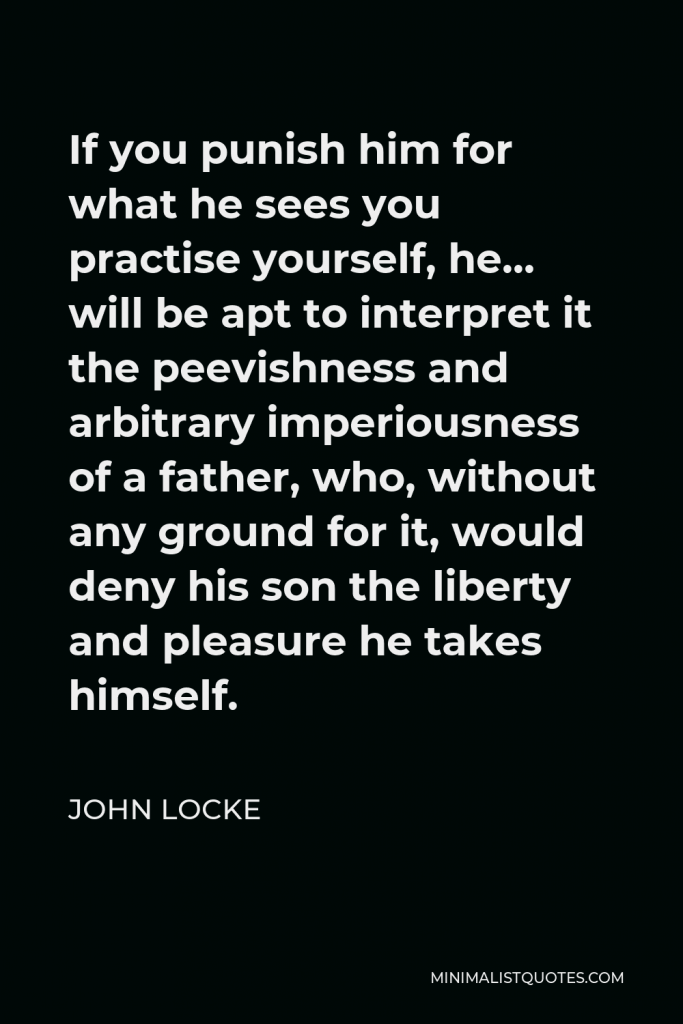

-





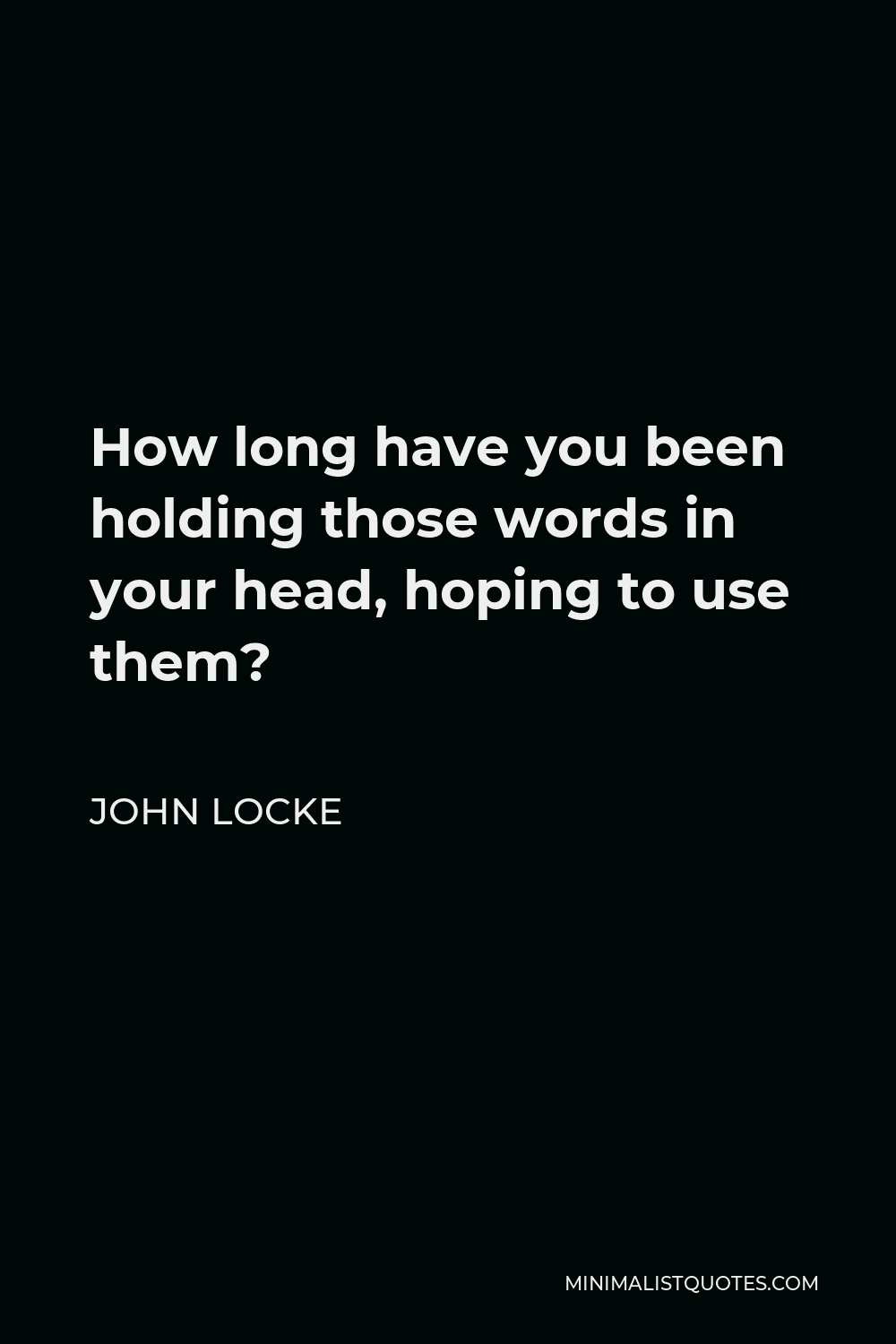
How long have you been holding those words in your head, hoping to use them?
JOHN LOCKE -





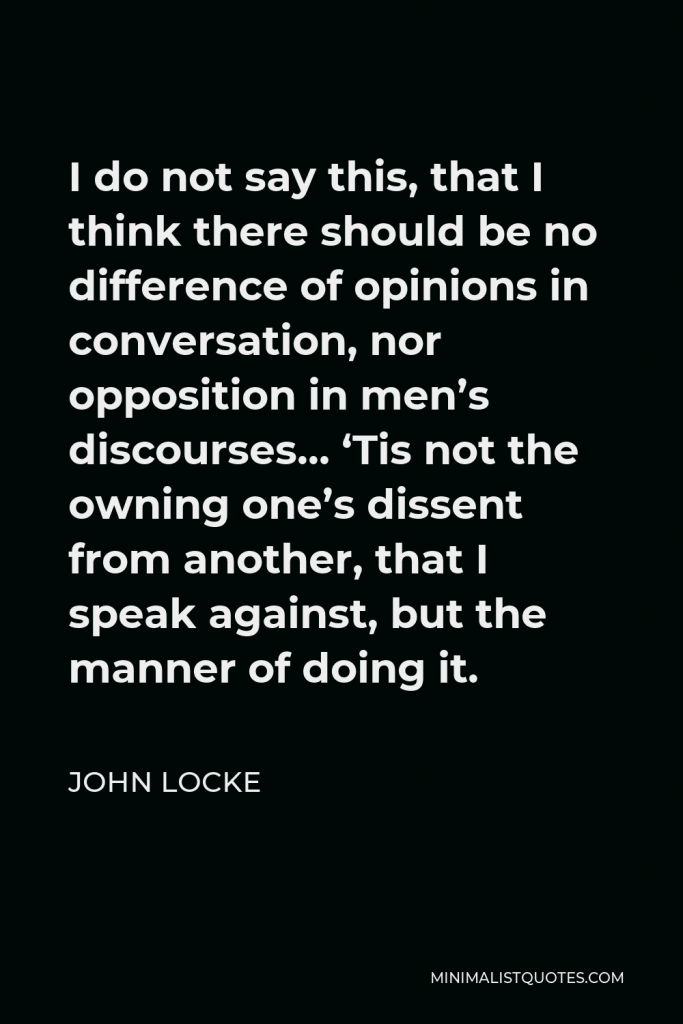

I do not say this, that I think there should be no difference of opinions in conversation, nor opposition in men’s discourses… ‘Tis not the owning one’s dissent from another, that I speak against, but the manner of doing it.
JOHN LOCKE -





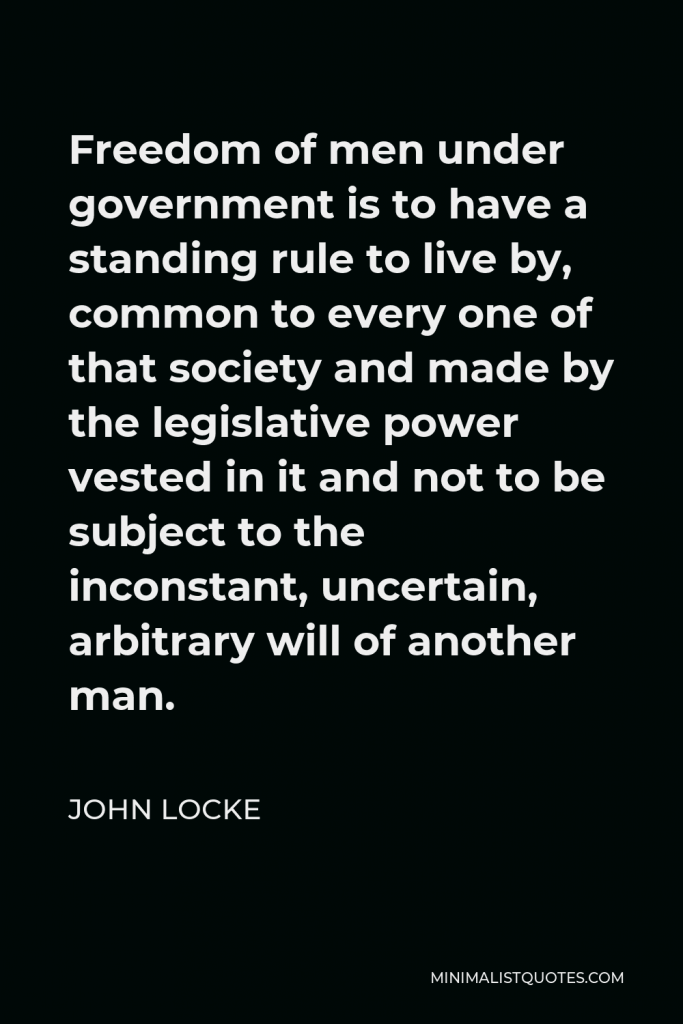

Freedom of men under government is to have a standing rule to live by, common to every one of that society and made by the legislative power vested in it and not to be subject to the inconstant, uncertain, arbitrary will of another man.
JOHN LOCKE -





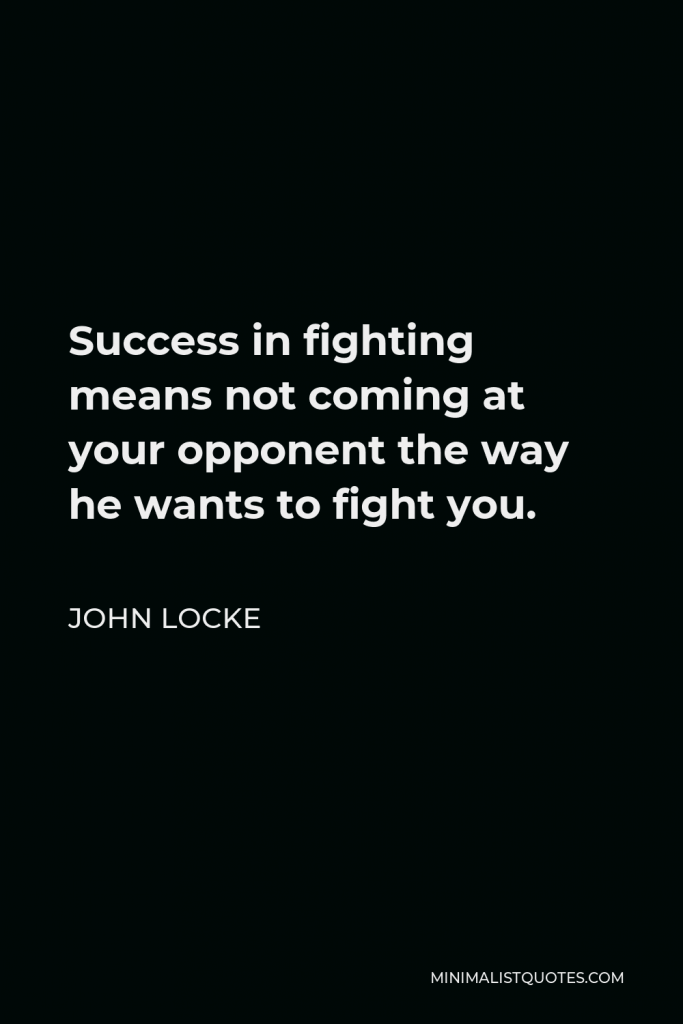

Success in fighting means not coming at your opponent the way he wants to fight you.
JOHN LOCKE -





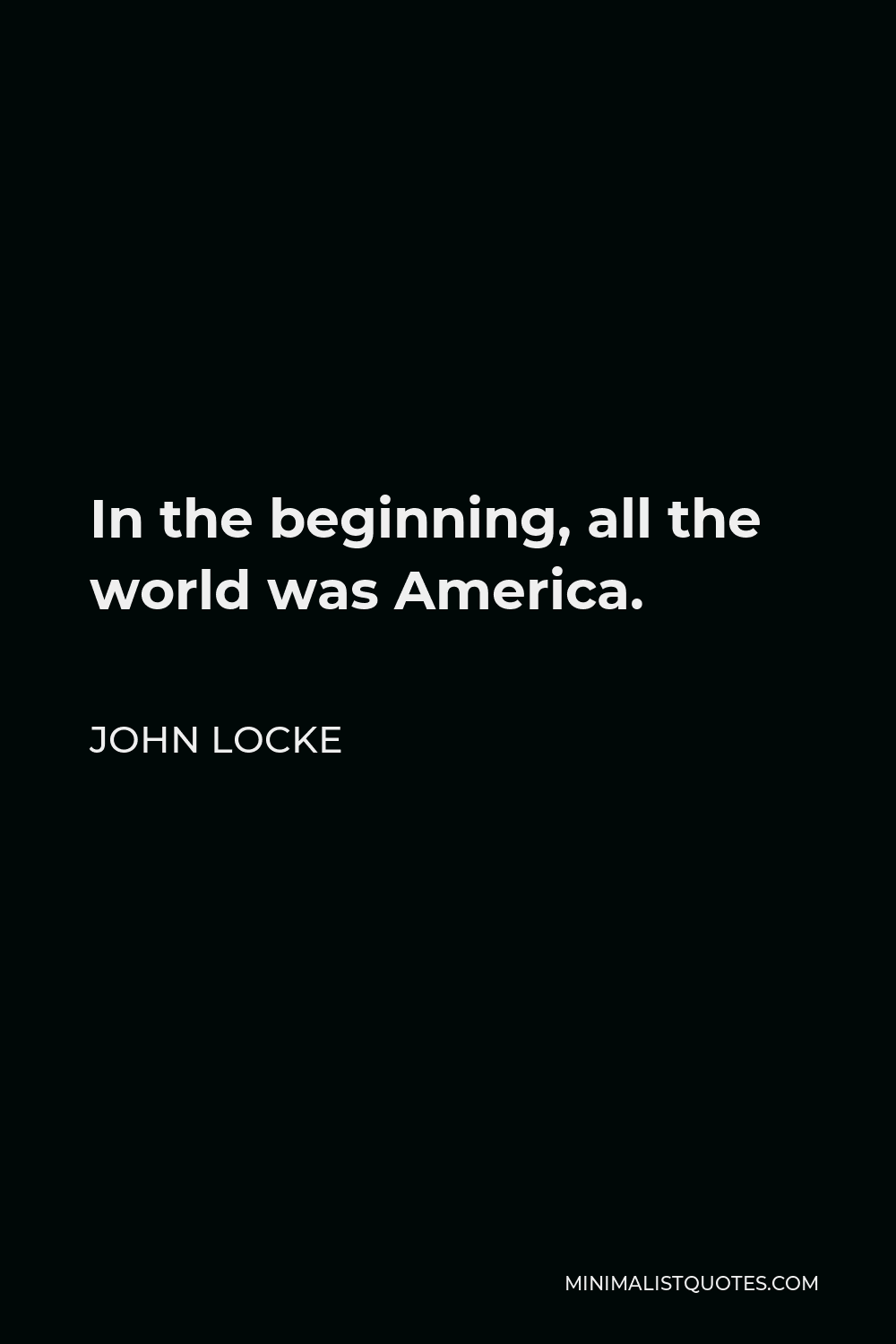
In the beginning, all the world was America.
JOHN LOCKE -





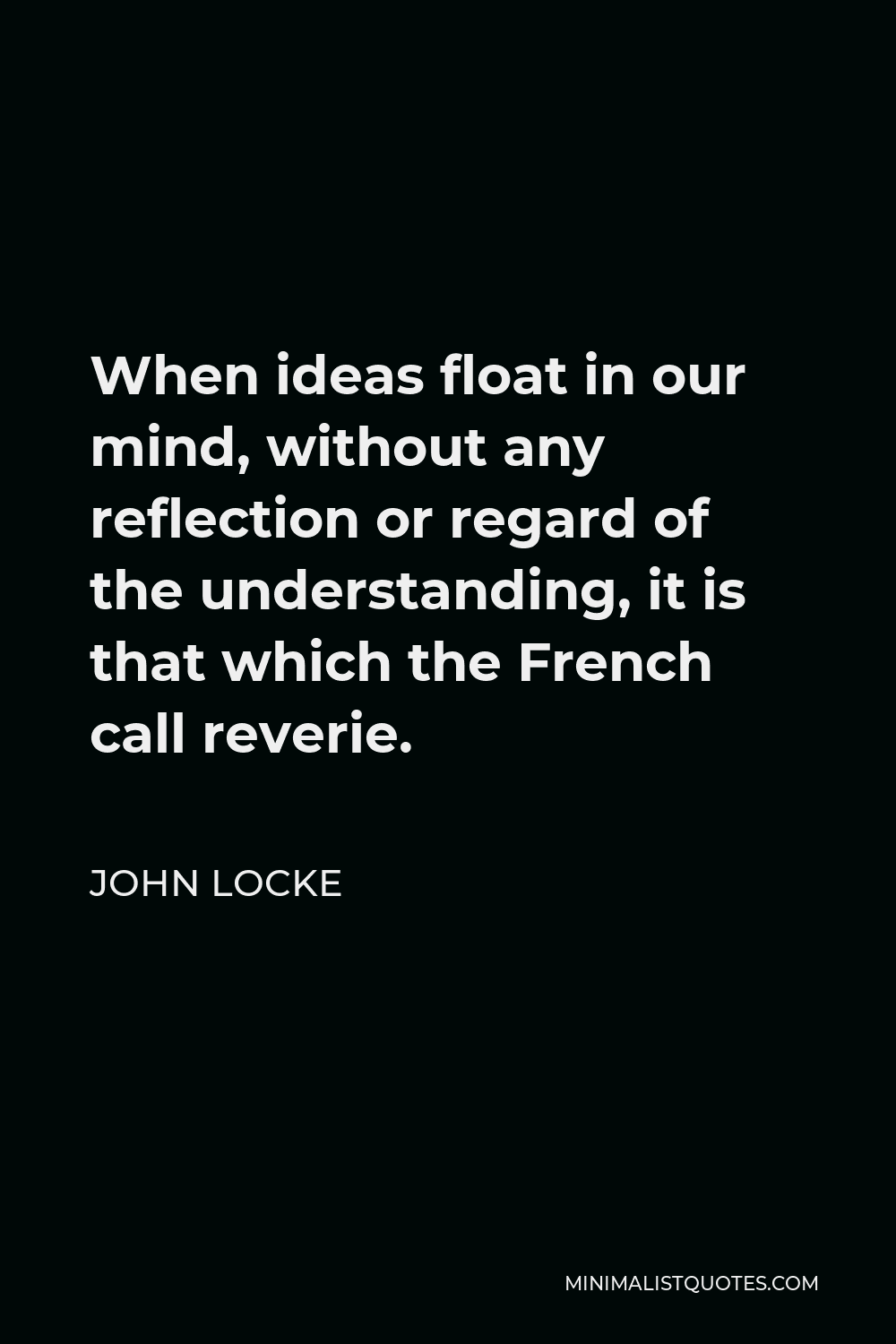
When ideas float in our mind, without any reflection or regard of the understanding, it is that which the French call reverie.
JOHN LOCKE -





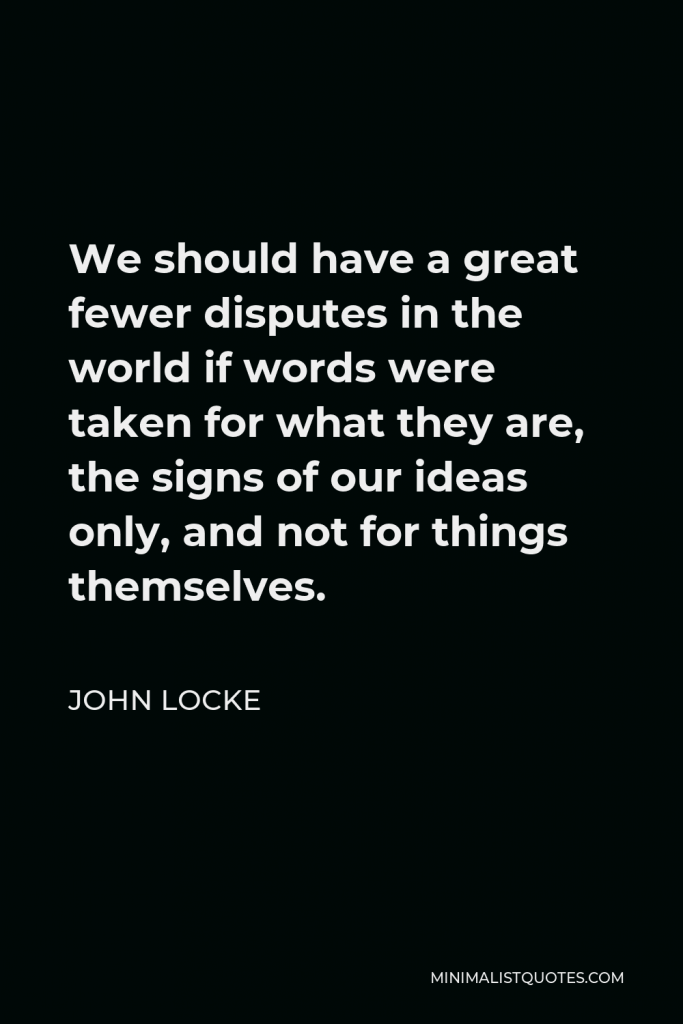

We should have a great fewer disputes in the world if words were taken for what they are, the signs of our ideas only, and not for things themselves.
JOHN LOCKE -





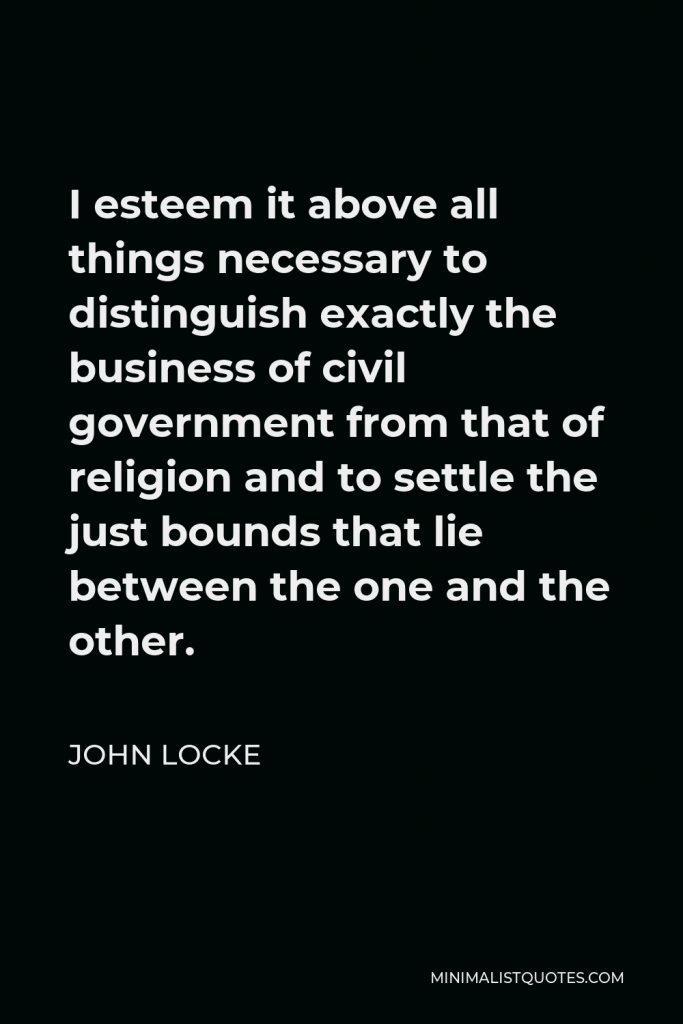

I esteem it above all things necessary to distinguish exactly the business of civil government from that of religion and to settle the just bounds that lie between the one and the other.
JOHN LOCKE -





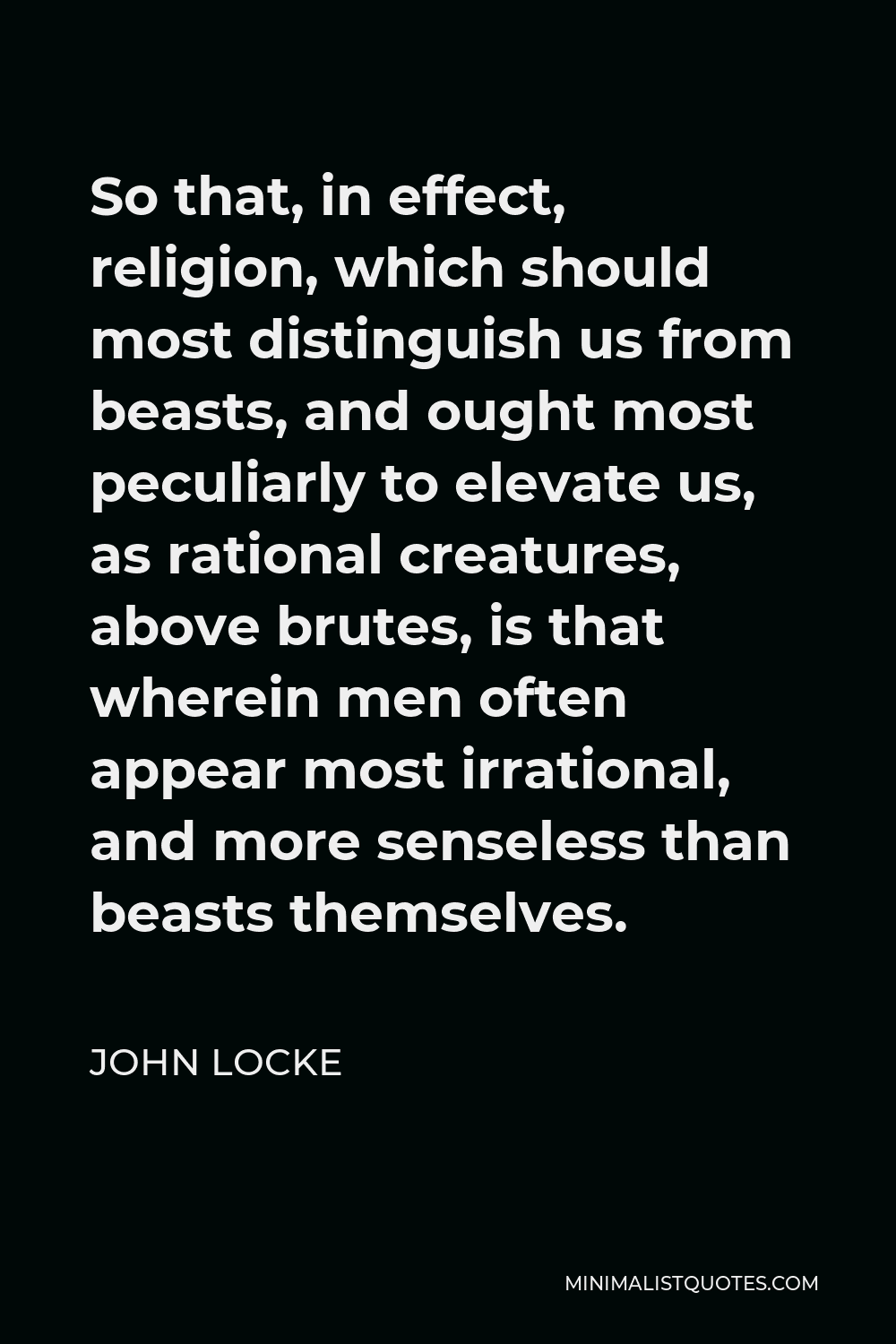
So that, in effect, religion, which should most distinguish us from beasts, and ought most peculiarly to elevate us, as rational creatures, above brutes, is that wherein men often appear most irrational, and more senseless than beasts themselves.
JOHN LOCKE -





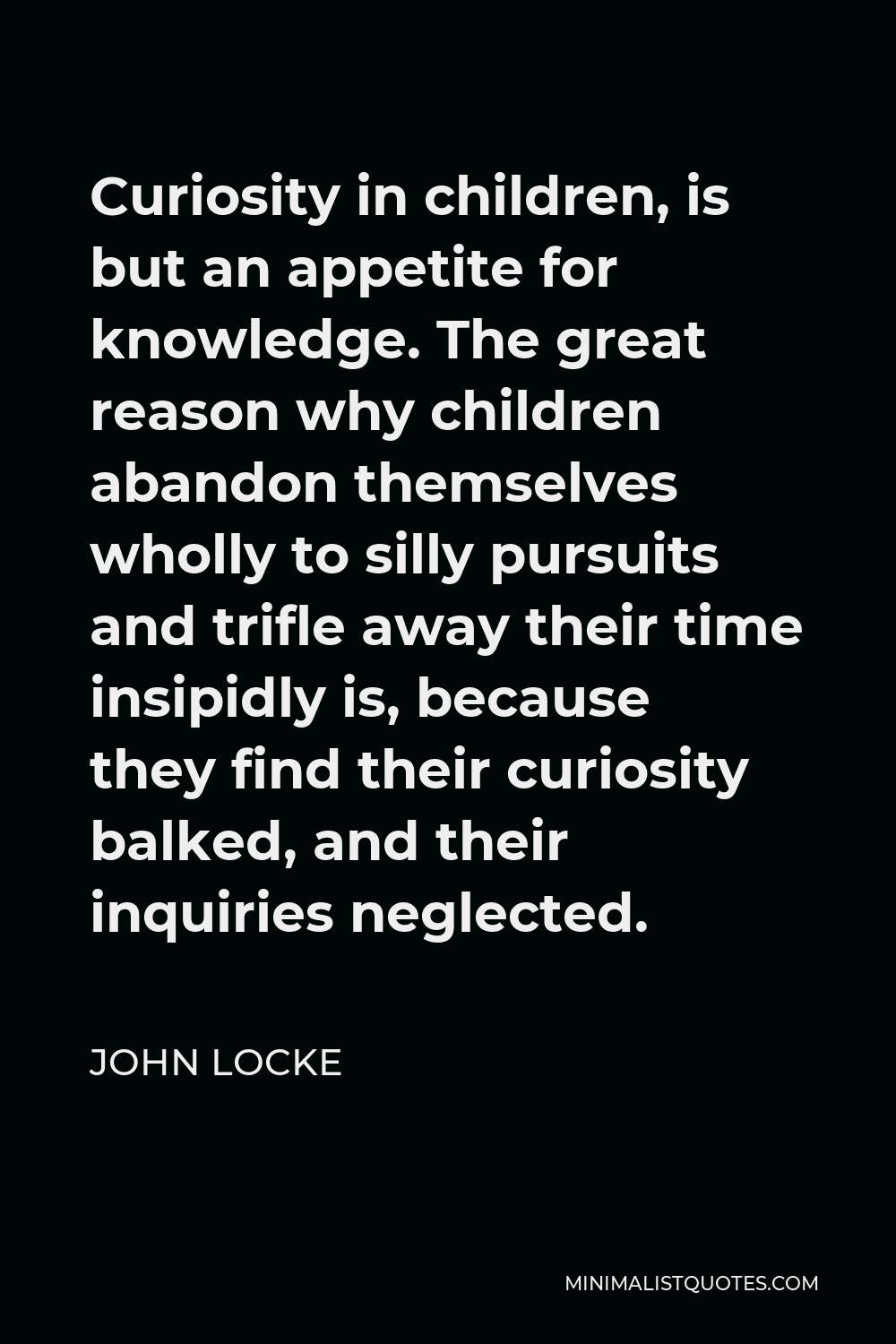
Curiosity in children is but an appetite for knowledge.
JOHN LOCKE -






If all be a Dream, then he doth but dream that he makes the Question; and so it is not much matter that a waking Man should answer him.
JOHN LOCKE -





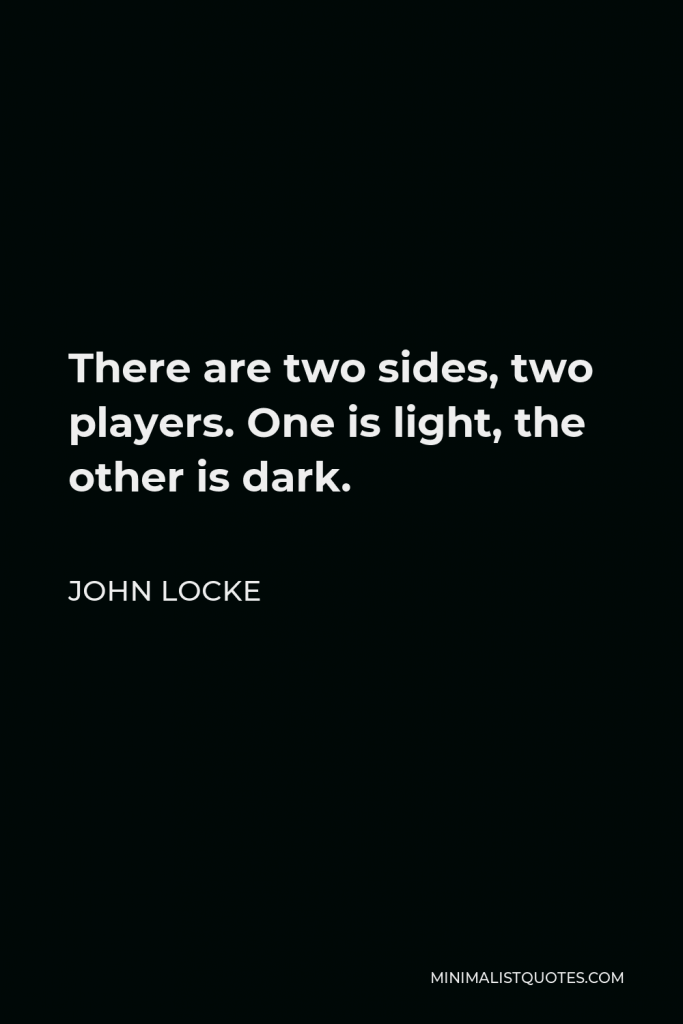

There are two sides, two players. One is light, the other is dark.
JOHN LOCKE -





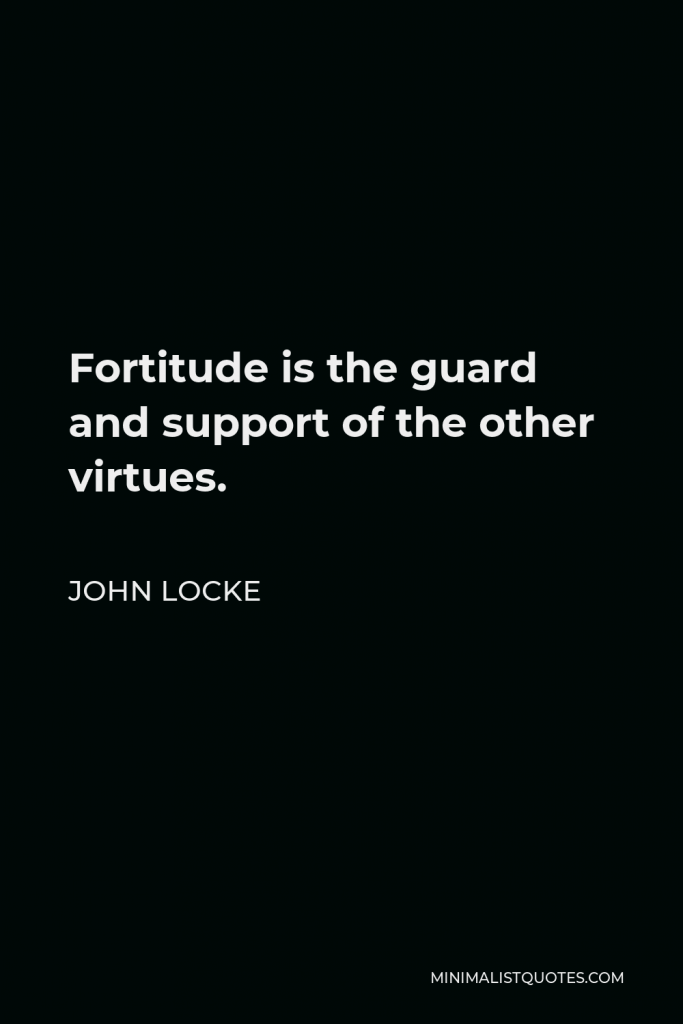

Fortitude is the guard and support of the other virtues.
JOHN LOCKE -





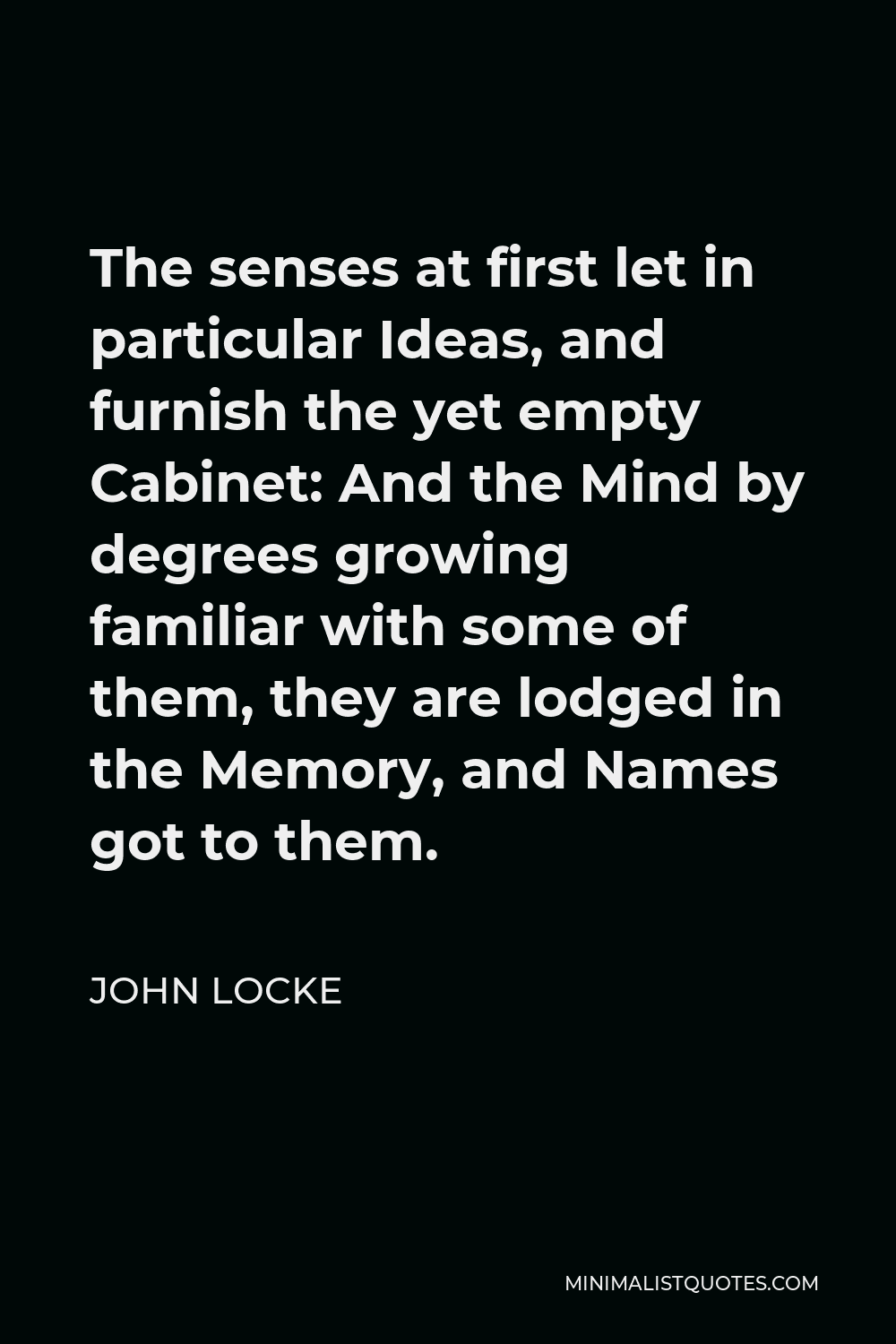
The senses at first let in particular Ideas, and furnish the yet empty Cabinet: And the Mind by degrees growing familiar with some of them, they are lodged in the Memory, and Names got to them.
JOHN LOCKE -





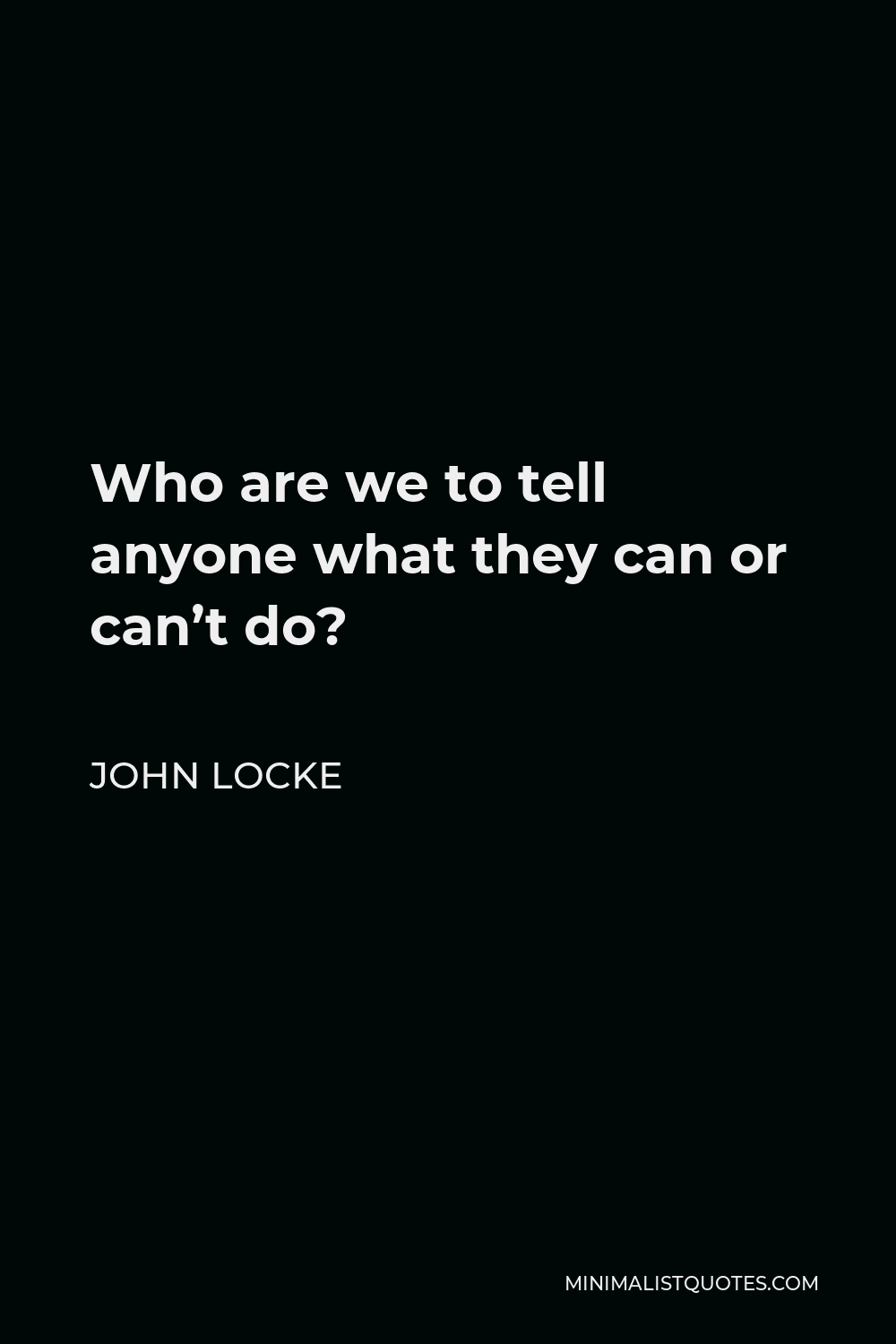
Who are we to tell anyone what they can or can’t do?
JOHN LOCKE
